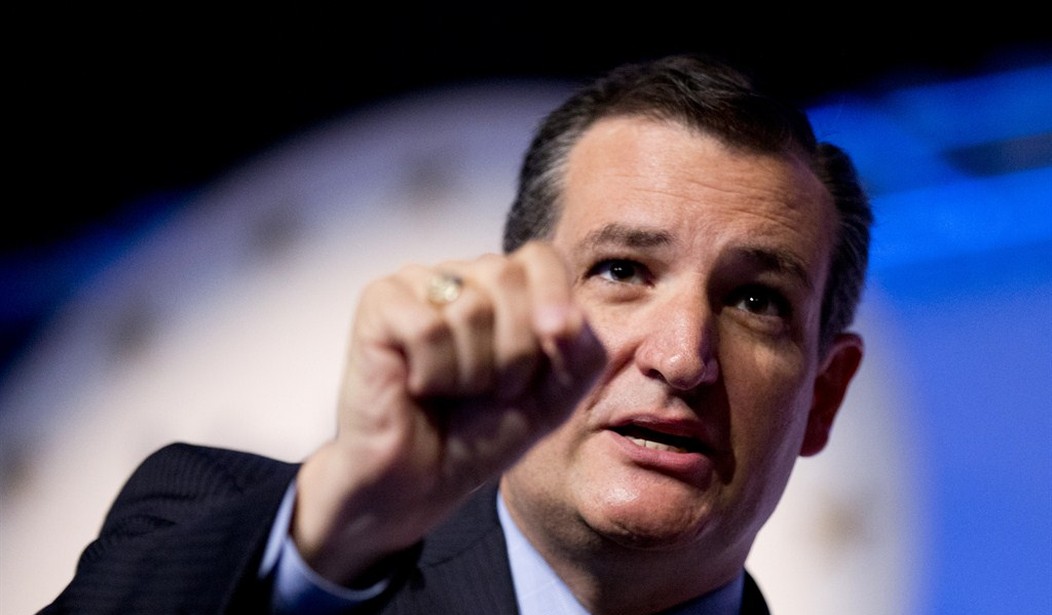A deep bench is great, but its time for some front-runners. S.E. Cupp reports for the November issue of Townhall Magazine.
With the midterm elections decided this month, the GOP now turns its attention toward 2016.
Hopefully, though, Republican apparatuses like the Republican National Committee as well as individual campaigns have been readying all along. If 2012 proved anything, it’s that winning midterm elections does not always portend a successful national election, especially if the shift from turning out the base to winning the middle happens too abruptly and too late.
The future looks bright for the GOP. Democrats have suffered numerous setbacks in the past year. Led by a feckless and embattled president who many avoided during campaign season, Democrats are divided over both policy and politics. The unpopularity of traditional liberal pieties like gun control, Obamacare, and job-killing green energy reforms led some Democrats in red states to run as virtual Republicans. And the economic issues that were supposed to galvanize the Left, like raising the minimum wage and opposing tax inversions, just didn’t perform as expected.
There’s the unending string of bureaucratic failures that President Obama has overseen in the past few years as well, from the Affordable Care Act to the IRS, the VA to the NSA, and virtually every other initialed agency in between. Whoever runs on the Democratic ticket will need to explain why he or she should be trusted to restore competence after two embarrassing terms of ineptitude.
And finally, if foreign policy continues to lead the news cycle the way it has of late, Democrats will be in the traditionally unenviable and disadvantaged position of having to defend dovish caution during a time of high terror alerts. They’ll also have to defend a president who both failed to deliver on their visions of isolationism while also failing to get the interventionism he did pursue right.
All that said, I’m concerned that Republicans are, inexplicably, in a tight spot. While conservatives rightly point to our “deep bench” of compelling would-be presidential candidates, it’s worrisome that in six years no single figure has emerged as the clear leader of the party.
Indeed, if I asked 10 Townhall readers whom they liked for 2016, I might conceivably get 10 different, but equally passionate, answers. It’s also likely each of those 10 people would have just as passionate feelings about which Republicans they did not want to become the next president.
In contrast, if I asked 10 MSNBC viewers who they liked for 2016, I bet nine out of 10 say “Hillary Clinton” and that same nine out of 10 would say they didn’t want “any Democrat not named Hillary Clinton” to win.
Well-meaning (and well-paid) Republican flacks might spin our dilemma as evidence of healthy “free market competition,” a depth of intellectual diversity that Democrats do not have, and an aversion to the kind of inevitability that can kill candidates’ chances. “The primary will make the eventual nominee stronger,” they’ll say. That’s certainly possible. It definitely worked for President Obama in 2008. I can’t say the same of Mitt Romney in 2012, however.
But in an effort to carve out unique niches of support and set themselves apart, many of our conservative all-stars may have marketed themselves too specifically. On the other hand, the only two candidates who have marketed themselves more broadly are Chris Christie and Jeb Bush, and that’s resulted in some substantial distrust among the base of the party.
Recommended
So there are the establishment picks in Christie, Jeb and, potentially, another go from Mitt Romney. Rep. Paul Ryan could certainly run. There are the Senate rabble-rousers in Ted Cruz, Rand Paul, and Marco Rubio, who each have their own vocal fan bases. There’s the Class of 2012, or what you might call fifth-year seniors, not quite ready to leave in Rick Perry, Rick Santorum, and Newt Gingrich. There are the quiet executives: Gov. Scott Walker, Gov. Bobby Jindal, and Gov. Mike Pence. And there will always be fresh upstarts, like Dr. Ben Carson, who grab our attention, for a time at least.
But it’s time for one or two would-be candidates to emerge as clear front-runners. If conservatives can’t substantially consolidate this list in the next year, our principled but splintered party can just hand this over to the Democrats in 2016. And there are simply no circumstances under which that should be fair, right, or even imaginable.
Celebrating our big tent is fun, but it’s time to get down to business. •
S.E. Cupp is author of “Losing Our Religion: The Liberal Media’s Attack on Christianity.” She has a weekly column in the New York Daily News and is a co-host of CNN’s “Crossfire.”

























Join the conversation as a VIP Member